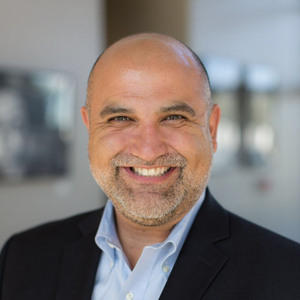Having worked in the corporate marketplace for nearly three decades now, I have had the opportunity to work side by side with many brothers and sisters. Throughout this experience, I have also come to a conclusion that, as Christians, we face a unique and poignant challenge: the separation and compartmentalization of our work life from our home life and walk with Christ. Satan attempts to leverage a heavy work schedule, a focus on performance and profitability, and the need to “fit in” with peers and other influential people to create an environment that distracts us from Christ and, in the process, create an attractive and enticing opportunity to live one way during the week and another on the weekend.
Through a discussion of the Thessalonian letters, John Taylor reminds the Christian in Work: Theological Foundations and Practical Implications (SCM Press, March 2018) of Paul’s claim that we are commanded to work hard “with labor and toil working night and day so as not to burden.” In fact, Paul encourages us to lean into the understanding that work is derived from faith, endurance derived from hope in Jesus Christ, and both labor and toil are derived from love. We may be self-supporting and enduring, thinking that we are in alignment with God’s purpose for work. However, the separation and compartmentalization begin as we forget that the Lord’s plan requires a “heart focus on the love of God and the endurance of Christ.”
Simply put, when we do not place the Lord in the center of every aspect of our life, we conveniently begin to selectively choose if and when to “sprinkle in” our faith. Over time, a dual lifestyle develops. I’m reminded of James 1:6-8, which states, “... [F]or he who doubts is like a wave of the sea driven and tossed by the wind. For let not that man suppose that he will receive anything from the Lord; he is a double-minded man, unstable in all his ways” (NKJV).
During the week, Christians may find themselves compromising their moral compass through the decisions they make, the ways they interact with people and the language they use while at work. Come the weekend, they then operate toward the other end of the spectrum. Have you ever been at a barbecue and had both work colleagues and family together for the first time? Have you heard the infamous “You act differently with work colleagues than you do with our family” from your spouse or children? How about the “You seem to be much more uptight and serious at home than you are when we are hanging out at the office” remark. These comments may indicate that you are experiencing some degree of compartmentalization.
Everything we do as Christians, including our careers, is to be done for the Lord Jesus Christ as an act of faith — we were not designed to treat the various components of our lives separately and live dual personas. We are uniquely designed with the purpose of learning who we are in Christ. We use our knowledge, gifts and abilities to serve him in our respective ministry, whether that be as an HR executive for a Fortune 100 company, a marriage and family therapist or a front desk administrator at a nonprofit organization.
This issue’s Last Word comes from the Crowell School of Business’ “Business. Ministry. Life.” blog and was originally published on April 22, 2019. The article stems from the Kern reading group on faith, work and economics at Talbot School of Theology, a small group composed of Crowell and Talbot faculty who discuss the intersection of the Christian faith with issues such as poverty, work, economics and justice.
Jake Aguas (M.A. ’08) is an associate professor of management at Biola’s Crowell School of Business. With over 25 years of experience in the banking and market research industries, Aguas has held leadership positions with two Fortune 100 companies and one of the country’s top polling firms.
(Photo / Unsplash)
 Biola University
Biola University




